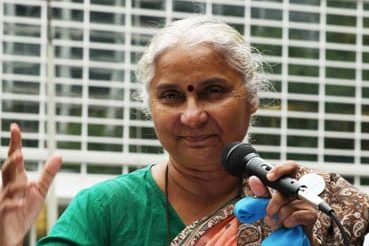When India’s Prime Minister Narendra Modi tweeted his happiness earlier this week that water levels at the Sardar Sarovar (Narmada) dam had “reached a historic 134.00 meters,” and encouraged the public to visit, he failed to acknowledge the many thousands of people living near the dam site whose lives have been ruined by its construction.
The same day the Prime Minister was touting the dam as a tourist destination, the Times of India reported that 20 villages in the area were on alert and facing the possibility of evacuation when heavy rains upstream caused water levels at the dam to rise to within four meters of the top of the dam. Activists say the situation has been compounded by a decision by the Gujarat state government to close the dam gates in an effort to force out families who refused to relocate away from the dam without rehabilitation assistance.
The dam’s social and environmental impacts have been a source of controversy and protest since it was first proposed in 1979 as part of a World Bank funded- hydroelectricity and irrigation scheme. Local resistance and international pressure on the Bank caused it to withdraw in 1993, but the dam’s construction continued. With each increase in the height of the dam, new communities have been affected. 7,000 people were reportedly displaced in 2013 when waters reached 131 meters after heavy rains; the dam was raised to 138 meters in 2017.
The indefatigable Narmada Bachao Andolan (Save Narmada Movement) founder and senior activist Medha Patkar has been on an indefinite fast for 7 days, demanding that the water level at the dam be lowered and that affected families are provided with adequate and just rehabilitation.
Inclusive Development International, along with members of civil society organizations from 12 countries, joins her call urging the Government of India to act now to address the growing humanitarian crisis in the Narmada valley, where approximately 32,000 families are facing eviction without rehabilitation due to the dam’s rising waters.
Read the Statement of Solidarity here.


